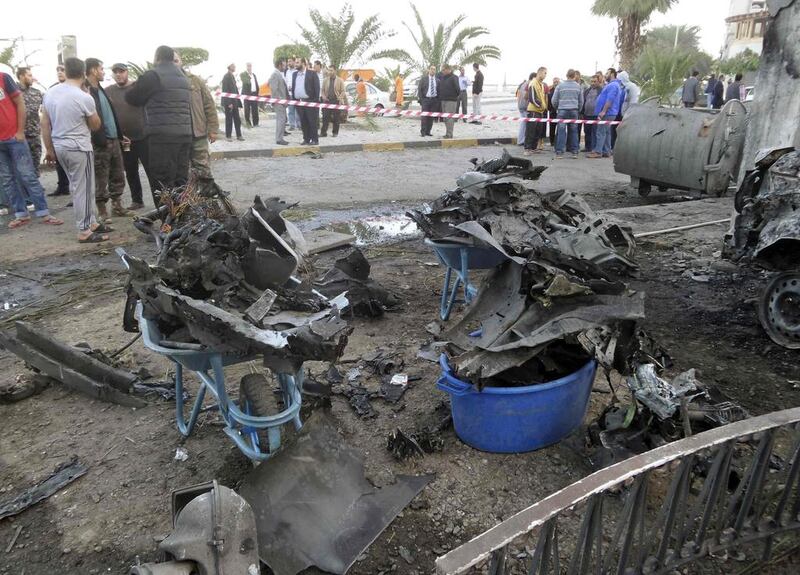On November 6, the constitutional circuit in Libya’s Supreme Court invalidated the elected parliament sitting in the eastern city of Tobruk – effectively annulling all decisions it had made over the past four months.
The political implications of the ruling are far-reaching. The Council of Representatives was quick to reject the decision claiming the judges who made it were not free, since the capital itself was under militia control.
For the first time in three years, partition appears as a possible scenario. With two governments, two parliaments and myriad armed militias at work, each side is refusing to accept compromise. The UN has recognised the Tobruk parliament as the sole legitimate body in the country, yet that same legislature has now been declared illegal.
All that is left behind is distrust, despair and the open possibility for more violence. In Tripoli, the militias that conquered the city have revived the former General National Congress (GNC), whose mandate expired after the new Council of Representatives was elected last June.
Despite its low approval ratings and the countless demonstrations against it last year, the GNC set up a rival government headed by Omar Al Hassi, a former university professor.
In light of the recent Supreme Court verdict, the GNC is likely to see itself as a legitimate proposition. This will only complicate the situation even further, making any political compromise harder to come by. It will also further alienate Libyans from voting in case fresh elections are considered as a possible compromise.
While such elections appear to be the only way out, this option remains doubtful given the deteriorating security situation across Libya.
In Benghazi, battles are still raging between small units of army (backed by forces loyal to retired general Khalifa Hiftar) and a coalition of jihadists and Islamists.
In Derna, further to the east, the Islamist militia group Ansar Al Sharia has declared its allegiance to ISIL in an elaborate public show of force in the city centre.
Sirte has been under control of a mixture of jihadists, Al Qaeda, and Ansar Al Sharia since 2012, who hope to conquer the rest of towns nearby in the Jufra district. This is an extremely strategic pocket of land and whoever controls it can effectively cut off the entire south of the country, where pockets of jihadists are also known to operate.
In the far west, Kikla is the current front line between Libya Dawn forces and Zintan, supported by small units of the still developing tribal army operating under the command of the Libyan-armed forces.
The country is now on the brink of an all-out civil war that could lead to its disintegration into its pre-independence 1951 trio of states: namely, Tripolitania in the west, Cyrenaica in the east and Fezzan to the south. This would mean further smaller wars would break out over resources, especially oil.
There is another possible outcome. Libya could become like Somalia, where warlords and militias have carved out their enclaves and operate with impunity. However, in Libya those militias are likely to be a mix of Islamists and jihadists, which opens up the possibility of fragmentation into far more than its original three regions.
When the UN Security Council adopted a resolution in August threatening sanctions against groups that destabilise the country, many people were hopeful that the international community had finally woken up to the mess it had helped to create in Libya, when it authorised the use of force to topple the Qaddafi regime in 2011
However, the UN has done nothing since, despite mounting civilian casualties.
It is the international community’s responsibility to help save Libya before it is too late. In particular, Europe stands to lose out the most if extremists prevail. Libyans can only gain if their country is stable, free and democratic.
Mustafa Fetouri is a Libyan analyst at IHS Global Insight, an author and a freelance journalist





